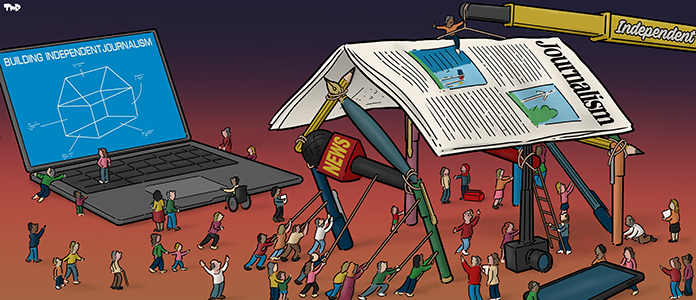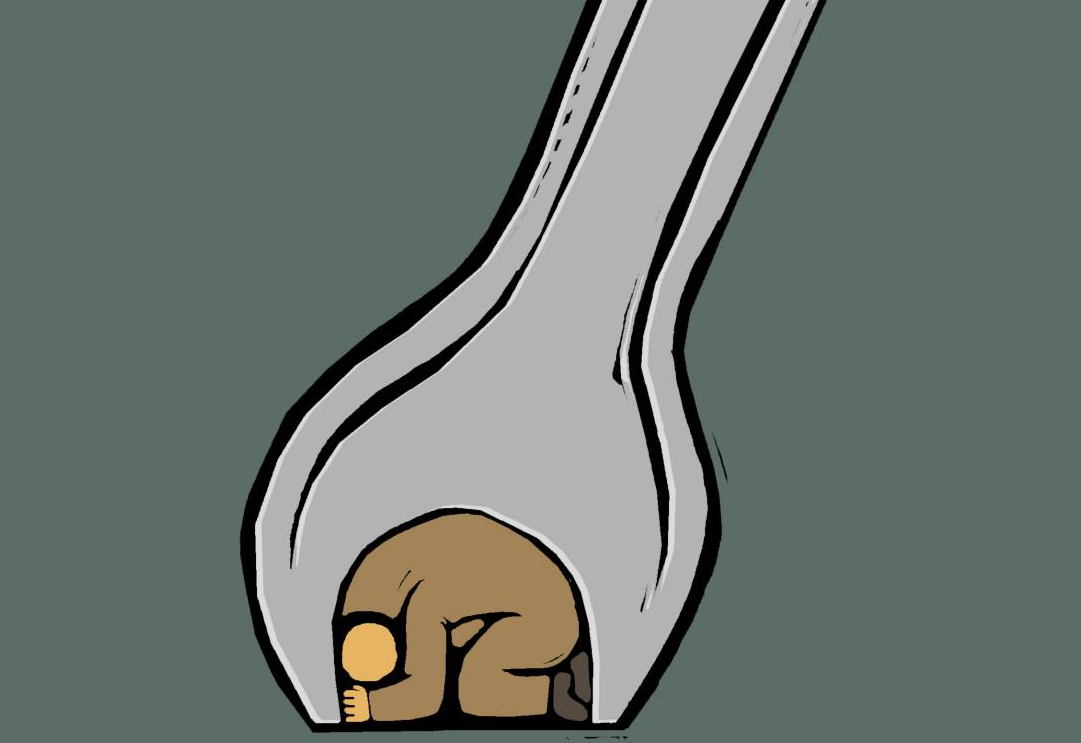Anton (not his real name) was overjoyed when he got a job as an operator at the SK Innovations (SKI) car battery plant in Komárom, Hungary, in 2020. "I was happy because the money was good, especially for that region." The gigafactory had just opened and, at the height of the Covid pandemic, the work was light. Within six months though, Anton had left the company after a urine test showed that he had levels of nickel three times above the safety limits.
Nickel accumulation has been linked to lung fibrosis, kidney and cardiovascular diseases, and cancer of the respiratory tract. There is also a high incidence of nasal and lung cancer among workers exposed to the material. "I have kids and I want to raise those kids," explains Anton.
As the continent ramps up its critical raw materials (CRM) industry in the face of a climate crisis nearing existential proportions, Anton’s experience could soon be replicated across Europe. CRMs such as lithium, nickel, cobalt and graphite are crucial for the clean energy technologies needed to stave off climate breakdown – from wind turbines to electric car batteries. But their supply chains are currently limited and scarcities are expected in the next decade.
As a result, new EU legislation in the form of the Critical Raw Materials Act proposes that by 2030, 10% of Europe’s CRM extraction, 40% of its processing and 15% of its recycling be done domestically – to ease dependence on third countries, many of which have poor human rights and environmental records.
¿Te está interesando el artículo?
Es de libre acceso gracias al apoyo de nuestra comunidad. Publicar y traducir nuestros artículos tiene un precio. Para seguir informándote de manera totalmente independiente, necesitamos tu apoyo.
Hungary will benefit more than most from this. By 2031, it is expected to be the second biggest producer of car batteries – and the single biggest producer of "tier 1" batteries, which can be used in Europe – according to Benchmark Mineral Intelligence (BMI), a market analyst. BMI has stated that this is partly because Hungary offers cheaper labour and land costs than western Europe.
EV’s revolution health costs are yet to be calculated
Meanwhile, the health costs of the electric car revolution are yet to be calculated. According to the European Environment Agency, Europe has 23% of the world’s new cancer cases, despite only making up 6% of the world’s population, in part because of "chronic exposure to some pharmaceuticals, pollutants and other occupational and environmental carcinogens." And yet according to recent reports, under industry pressure the European Commission appears to be retreating from plans to ban hazardous chemicals. Plans to more strictly regulate substances such as lithium could be the next under review.
In fact, according to BMI, the Hungarian government gave SKI a 209 million euro subsidy to build another battery plant in Iváncsa. There, 300 workers who had been denied protective equipment went on strike in June 2023 after an outbreak of vomiting, diarrhoea and rashes, according to some reports of the wildcat action. According to others, the issue of unpaid wages was a deciding factor. Many trade unions say that it is not always possible to identify illnesses caused by cocktails of CRMs with chemicals, and that a lack of regulatory vigilance has added to the problem.
The critical raw materials that Anton was working with – nickel, cobalt and manganese – accumulated into "a thick layer of dust" that settled all over the factory. "Everyone in the plant knew that there was a dust problem because they had to clean it all the time and use vacuum cleaners on the electronic devices," he says. "But we were only given Covid medical masks and rubber gloves for protection. I knew someone whose nickel levels were five times higher than normal, but in the Hungarian system – which is corrupt – no one cares about a few dead workers. The whole system is structured in favour of these companies."
‘Every time you attack workers rights, support for the Green Deal in particular – and climate policies in general – goes down’. – Marc Botenga, Left Party MEP
"No occupational exposure limit for lithium has been established, beyond existing safe work practices," says Glen Mpufane, the mining director for the IndustriAll Global Union. "The same goes for cobalt and it may well be that, given the latent exposure of workers to their toxicity and cancer risks, somewhere down the line, workers will face the consequences, as they did with silicosis and black lung cancer in coal mines."
In Hungary, where unions expect employment in the CRM sector to rocket from around 7,000 now to as many as 40,000 within a decade, the setup has been exacerbated by a lack of regulatory enforcement. Unions say that it would take 160 years for the current health and safety inspectorate to visit every company. Balazs Babel, the vice president of Hungary’s metalworkers union Vasas says: "We need better protection for workers. That’s for sure. This is a very, very dangerous field of work. Where there is a suspicion of exposure to dangerous materials, then workers should be provided with ventilation and all the protective gear they need."
During SKI’s safety training session in Komárom, Anton says that he asked the company’s health representative about the safety of one of the chemicals he was working with: N-Methyl-2-Pyrrolidone (NMP). "They said: 'It’s not dangerous at all. You can even drink it and you wouldn’t have any problem'", he remembers. However, NMP, which is suspected of being reprotoxic, had been added to the EU’s restricted substances list two years before. SKI did not respond to a request for comment.
Battery plants boom
Europe’s expansion of a domestic CRM industry will not be limited to Hungary. For the world to hit net zero targets by 2050, cobalt and neodymium demand may rise by 150%, copper and nickel by 50-70%, and graphite and lithium by 600-700%, according to the International Energy Agency. Where electric batteries are concerned, Germany is expected to become Europe’s largest producer, followed by Hungary, Poland, France and Sweden.
Peter Froven, an official for Sweden’s IF Metall union said that while his country’s gigafactories only employed a few thousand workers at present, they were ‘popping up like mushrooms’ and by 2030 their workforce could multiply by a factor of ten. "We have fears that they're building so fast that they're basically burning out the workforce," he says. "I mean, you’ve got production one day, you're stopping the next, and you're also learning how to do the new processes safely while you're doing it."
"Building a battery requires the cleanest area you can find. It has to be completely dust-free. And if you're simultaneously constructing the building around this area, then of course you'll have problems with missed deadlines because there's leakage of dust into the batteries. There's also a very fast pace, which means mistakes are easier to make. We’ve had chemical leaks, quite bad cuts, chemical skin burns, things like that.’ After workers at one plant were sprayed with chemical slurry used to fill up batteries, IF Metall faced the inevitable problem of trying to identify which substances had been in it. ‘It’s like the Coca Cola recipe," Froven jokes.
‘Mining remains one of the world’s most hazardous occupations. This is one of the industries with the most extreme accidents, lots of chronic disease, and illness. These things still happen in Europe’. – Sophie Grenad, adviser to IndustriAll
Such incidents have stoked calls for the European Commission to tighten regulatory oversight of substances used in the CRM sector. Occupational exposure limits for hazardous materials are set at EU level and transposed by EU members, but national implementation often leaves much to be desired. Sophie Grenade, an adviser to IndustriAll, says that social partner agreements such as Nepsi – which was established between unions and employers to counter silica exposure – were helping to improve the situation on the ground. Partly funded by the EU, Nepsi is considered complementary to binding occupational exposure limits.
However, campaigners such as Friend of the Earth Europe say that an industry that spends 21 million euros a year on lobbying in Europe, and has held on average two meetings a week with EU policymakers since 2014, creates its own gravity, dragging down legal protections for workers and the public alike.
Lithium labelling
The European Chemicals Agency (ECHA) has recommended a "reprotoxic" classification for lithium, obliging greater regulatory protections for workers. But it is unclear whether the Commission will over-ride this for the greater good of a smooth and profitable roll-out of electric vehicles. The Commission has asked ECHA to launch another public consultation on the question and will not give any information about timing nor on the grounds it could use to over-rule ECHA.
Responding to a request for comment, an EU official who declined to be identified told HesaMag: "The Commission is committed to better protect[ing] human health and the environment, as part of an ambitious approach to tackle pollution from all sources and move to a toxic-free environment. In this sense, the Critical Raw Materials Act takes these concerns very seriously and puts in place a framework that will ensure that such environmental concerns are well assessed."
Other substances such as nickel and cobalt have been labelled by ECHA as suspected reprotoxins and carcinogens, but as Vasas vice president Babel puts it: "It’s not enough that we have laws, we need enforcement of these laws." This is reaffirmed by IndustriAll’s Grenade: ‘We need regulation and strong standards that are absolutely binding and not just “narrative”’.
Buried treasure?
The issue goes deeper than new battery plants. Europe’s CRM Act will speed up the permitting process for mining, processing, refining and recycling infrastructure, which may be assigned an ‘over-riding public interest,’ according to the proposed legislation. Environmentalists often point out that the health costs of coal mining eclipse those from substances like lithium by an order of magnitude, but there is a caveat: there is a vast difference between the scale of these sectors, and their available data.
The continent has some noteworthy reserves of CRMs, albeit far less than its coal. While Europe has an estimated 79 billion metric tonnes of coal reserves, it has only around 1.3 million tonnes of cobalt reserves, mostly in the Balkans and Turkey, and is thought to contain around 7% of the world’s 98 million tonnes of lithium reserves, in countries such as Portugal, Czechia and Germany. The continent also has significant graphite deposits in Scandinavia, and mined 243,000 tonnes of nickel in 2021.
Extracting these resources can be done in various ways. Lithium, for example, can be mined in open pits or pumped up from underground geothermal reserves in a briny liquid that must be treated to remove it. Sophie Grenade points out that whether it is coal, nickel or some other material being mined, despite industry’s efforts mining "remains one of the world’s most hazardous occupations. This is one of the industries with the most extreme accidents, lots of chronic disease, and illness. These things still happen in Europe. We know that the extraction of lithium and cobalt may cause problems. When it comes to sustainable mining or the responsible use of raw materials, lithium is very corrosive, so there are risks there for explosions. Cobalt is reprotoxic and may cause cancer so we absolutely need strong safeguards for workers, collective rights and occupational exposure limits in line with scientific data." Grenade want to see these written into the EU’s Critical Raw Materials Act to ensure that "the clean tech race does not lead to deregulation."
Community protests
Where the dissent of communities and workers is ignored, the results can be explosive. A 2.2 billion euro lithium mine in Serbia planned by Rio Tinto was cancelled in 2022 after mass protests by local people concerned about environmental pollution and water contamination, even though the mine could reportedly have provided 90% of Europe’s lithium needs. Community demonstrations in Portugal – including a new protest camp launched in August 2023 against what would be Europe’s largest open pit lithium mine in Boticas – underline the obstacles facing any expansion of Europe’s CRM industry.
According to Cecilia Mattea, the batteries and supply chain policy manager for Transport and Environment, a campaigning NGO and think tank, the EU’s mining laws are inadequate and in need of reform: "The EU’s mining laws are so outdated that in Spain for example, mine tailing is allowed to sit much closer to the local community than in China or Brazil. It’s simply not acceptable. We should review the EU’s mining laws."
Some policymakers fear that even raising these sorts of issues is likely to stir a backlash against electric vehicles which are, after all, powered by the renewable energy the planet needs to avoid catastrophe. But trade unions have countered that ignoring the needs of workers creates the constituency for a backlash by leaving left-behind communities with a sense of grievance that is vulnerable to manipulation. Asked whether workers were still supporting the clean energy transition, Babel answers honestly: "I’m not sure if workers really care that much."
"Every time you attack workers rights, support for the Green Deal in particular – and climate policies in general – goes down," says Left Party MEP Marc Botenga. "Where workers have real health and safety concerns and communities have real concerns about their drinking water it will obviously and very clearly weaken support for climate policies." His colleague, the Left Party MEP Cornelia Ernst, adds: "The Green Deal needs social majorities and these come about when people's living and working conditions improve. A green deal without the workers is not possible."
👉 Original article on HesaMag
Has podido acceder a todo el artículo.
¿Quieres apoyar nuestro trabajo? Voxeurop depende de las suscripciones y donaciones de sus lectores/as.
Descubre nuestras ofertas y ventajas solo para suscriptores/as a partir de 6 € al mes.
Suscribirse
O haz una donación para fortalecer nuestra independencia.
Hacer una donación












